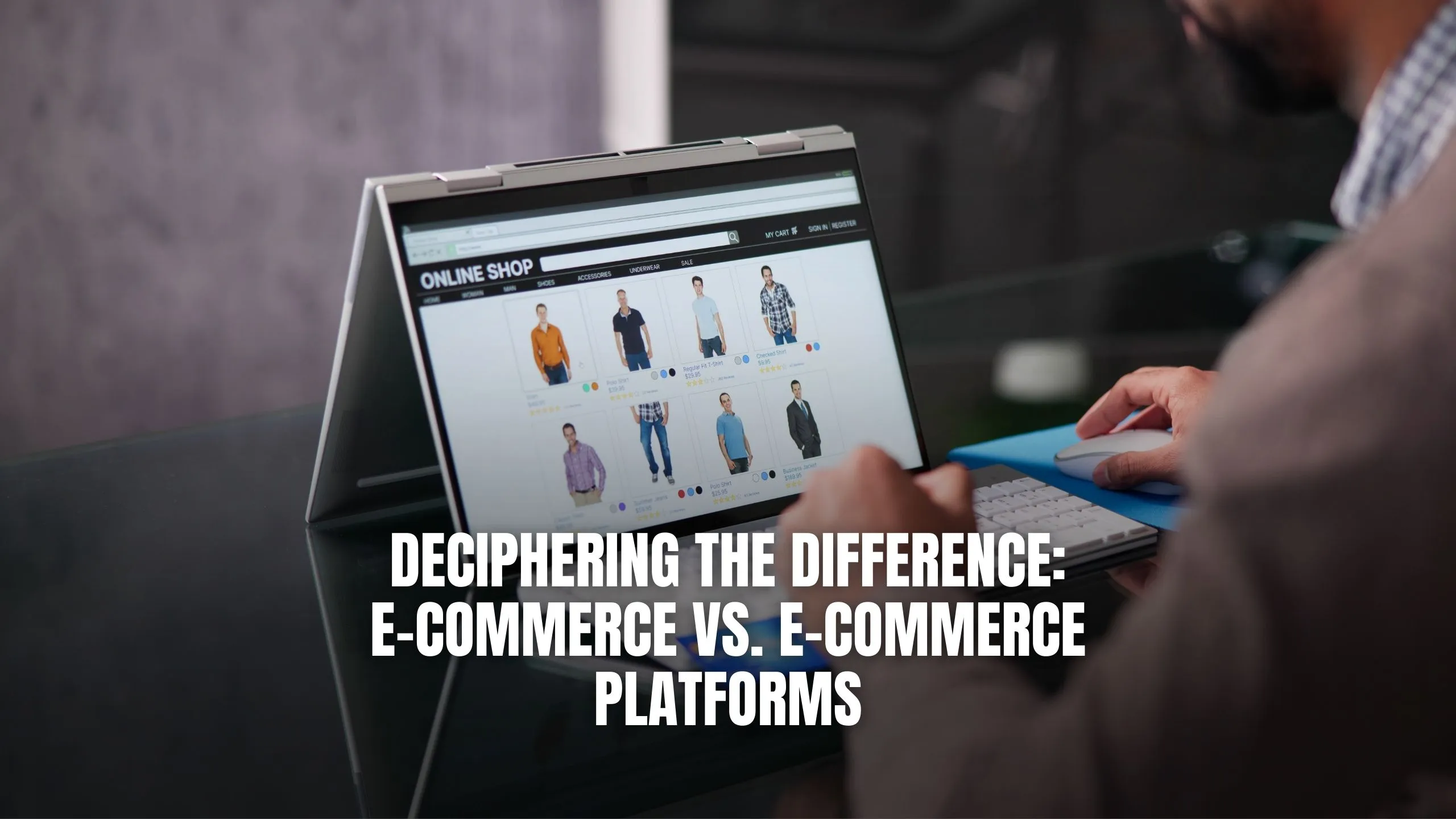Deciphering the Difference: E-commerce vs. E-commerce Platforms


Deciphering the Difference: E-commerce vs. E-commerce Platforms
In the realm of online business, the terms “e-commerce” and “e-commerce platforms” are often used interchangeably, yet they represent distinct concepts with nuanced differences. Understanding these disparities is essential for entrepreneurs and businesses aiming to establish their digital presence effectively.
1. Defining E-commerce
E-commerce, short for electronic commerce, refers to the buying and selling of goods or services over the internet. It encompasses a broad spectrum of transactions, ranging from consumer retail purchases to business-to-business (B2B) transactions. E-commerce facilitates the exchange of products or services through online storefronts, digital marketplaces, or individual websites, enabling businesses to reach a global audience.
2. Understanding E-commerce Platforms
On the other hand, e-commerce platforms are comprehensive software solutions designed to facilitate the creation and management of online stores. These platforms provide businesses with essential tools and features, including website builders, payment gateways, inventory management systems, and marketing tools. Examples of popular e-commerce platforms include Shopify, Magento, and WooCommerce.
3. Differentiating Factors
While e-commerce refers to the overarching concept of online commerce, e-commerce platforms serve as the infrastructure for conducting online transactions. E-commerce platforms offer a suite of tools and functionalities tailored to streamline various aspects of online business operations, from store setup to order fulfillment. Understanding this distinction is crucial for businesses seeking to establish their online presence effectively.
4. Key Considerations for Businesses
When evaluating whether to engage in e-commerce or invest in an e-commerce platform, businesses must consider their specific needs and objectives. E-commerce platforms offer scalability, customization options, and integrated features that can streamline operations and enhance the shopping experience for customers. However, they may require initial investment and ongoing maintenance costs.
Relevant SaaS Products
- Shopify: Shopify is a leading e-commerce platform that empowers businesses to create, customize, and manage their online stores efficiently. With its user-friendly interface and robust features, Shopify is an indispensable tool for entrepreneurs looking to establish their digital presence.
- Magento: Magento is a versatile e-commerce platform renowned for its scalability and flexibility. Ideal for businesses of all sizes, Magento offers a wide range of features, including advanced customization options and comprehensive store management tools.
- WooCommerce: WooCommerce, a plugin for WordPress, transforms websites into fully functional e-commerce stores. With its seamless integration with WordPress and extensive plugin ecosystem, WooCommerce provides businesses with a powerful yet cost-effective e-commerce solution.
- BigCommerce: BigCommerce is a cloud-based e-commerce platform designed to help businesses build, scale, and grow their online stores. With its intuitive interface and robust feature set, BigCommerce enables businesses to create compelling online shopping experiences.
- Volusion: Volusion is an all-in-one e-commerce solution that empowers businesses to create and manage their online stores with ease. From customizable templates to built-in marketing tools, Volusion provides businesses with everything they need to succeed in the competitive e-commerce landscape.
Conclusion
In conclusion, while e-commerce and e-commerce platforms are closely intertwined, they represent distinct concepts with unique implications for businesses. Understanding the difference between the two is essential for entrepreneurs seeking to establish a successful online presence. By leveraging the capabilities of e-commerce platforms like Shopify, Magento, or WooCommerce, businesses can unlock the full potential of online commerce and drive growth in the digital marketplace.
Revolutionize Your E-commerce Experience with Subscribed.fyi!
Ready to streamline your e-commerce operations and unlock exclusive deals on essential SaaS tools? At Subscribed.fyi, we empower businesses to make informed decisions about their SaaS stack, including e-commerce platforms and other essential tools. Sign up for free today to access secret deals and maximize your savings on 100+ SaaS tools, saving you over $100,000 per year! Unlock Secret Deals Now!
Relevant Links:





